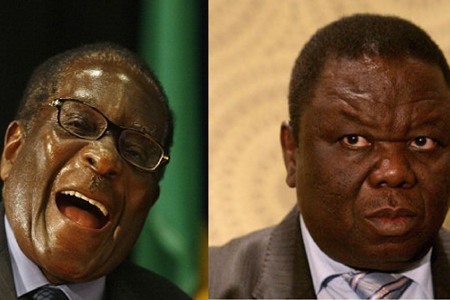
Since the formation of the Government of National Unity in 2008, it has been a clear and deliberate policy of President Robert Mugabe and Zanu PF to hold onto power despite popular domestic opposition. Despite the massive amounts of violence, harassment, and intimidation that was, and continues to be, inflicted upon opposition supporters and civil society, countervailing opinions remain strong and vocal. While several public opinion surveys over the course of the past year show an increase in support for Zanu PF and sometimes significant declines in support for Morgan Tsvangirai’s MDC, many experts nonetheless concede that the country’s liberation party is not in a favourable electoral position. In fact, it seems the only manner in which Zanu PF can feasibly win is if the election environment is once again marred by violence and by means of malfeasance by-election.
While the disarray in Zimbabwe is often explained or otherwise viewed through the prism of political affiliation, it is important to note the severe social cleavages and tensions that currently exist.
Mugabe, in collusion with Zanu PF hardliners in the military, security sector and the police, have expertly perceived and exaggerated threats to national security, driving them to abridge civil liberties and human rights. Civic leaders and opposition political figures who challenge Mugabe’s dictatorial directives are often branded “enemies of the state” and “agents of regime change”.
These labels, in effect, allow state security agents to act with impunity, often arresting leaders on spurious grounds and using repressive legislation to stifle peaceful assembly, association, and freedom of expression.
The heinous acts perpetrated by Zanu PF — and its affiliated militias and “war veterans” — fit neatly into the party’s liberation ideology, a continuation of the narrative used by Mugabe to ostensibly safeguard the country from the imperial and neocolonial impulses of the West. Most recently, this rationale has been used by the country’s partisan police to “ban” shortwave radios, which are allegedly used to incite violence and peddle foreign propaganda.
A number of prominent civic organisations, including Radio Dialogue and Zimbabwe Peace Project (ZPP), have been raided and a number of radios were confiscated to limit access to independent media.
Zimbabwe is in the midst of an uncertain transition, where most institutions of the government remain unreformed. Zanu PF continues to run roughshod over and dominate important ministerial portfolios, including local government, defence, the police, the security sector and mining.
This toxic combination has, in effect, created a parallel government in which Zanu PF, partly due to enormous windfalls from diamond and natural resource revenue, has been allowed to control vital levers of power in the country.
- Chamisa under fire over US$120K donation
- Mavhunga puts DeMbare into Chibuku quarterfinals
- Pension funds bet on Cabora Bassa oilfields
- Councils defy govt fire tender directive
Keep Reading
What is more, Zanu PF has recently installed party stalwarts and long-time supporters to oversee important institutions, including the ZEC and the Human Rights Commission (HRC). The previous director of the HRC resigned in December 2012 due to the lack of a clear mandate, requisite funding and buy-in from political elites. Overall, the dire human rights problems in Zimbabwe are attributable to a climate of violence that has been fostered and perpetuated by the ruling elite within Zanu PF. Major institutions of the state are part of the problem, not the solution.
In public, Zanu PF frames their hold on power as necessary to protect against an inevitable neocolonial onslaught, while in private it is their desire to protect amassed wealth and shield themselves from criminal prosecution that underlies aspirations to rule in perpetuity.
While there is an impressive level of political direction and assertiveness by ordinary citizens, public interest groups and human rights defenders, the Mugabe regime has ably kept these social forces in check. Over the course of the past several months, a concerted and unsurprising crackdown on civil society has caused organisations to be largely on the defensive, with police break-ins, raids, and arrests commonplace throughout the country. The human rights situation will likely deteriorate further, as activists — and opposition supporters alike — will continue to encounter a parallel government that is bolstered by an impunity infrastructure, comprising the country’s most violent, increasingly affluent and wholly unaccountable individuals. For these reasons, regional and international engagement is necessary in the immediate term, including advocating for and securing international election monitors and peacekeepers well in advance of scheduled elections. — swradioafrica.com











